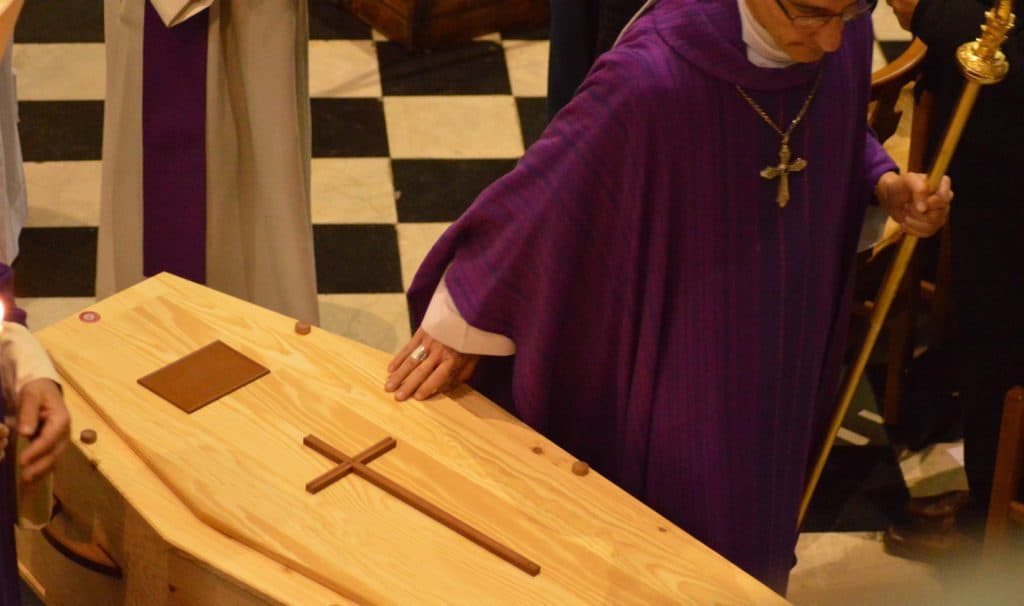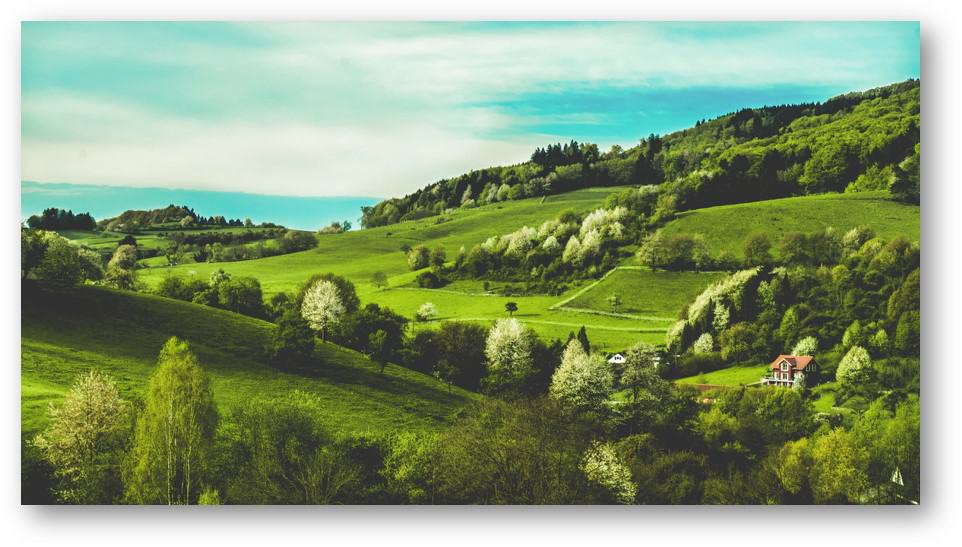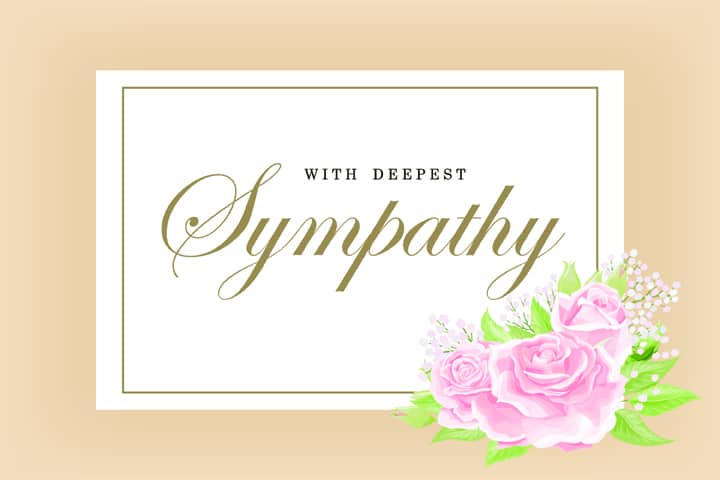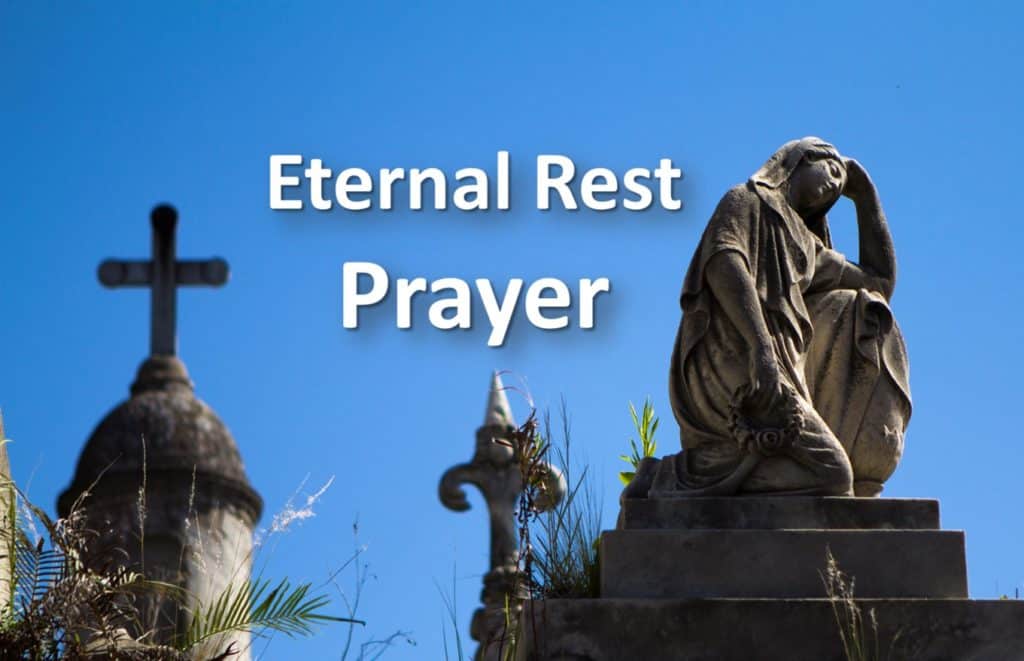The Lord Is My Sheperd Prayer is customarily read at Funerals by Roman Catholic Priests in the presence of the deceased person before burial and is sung as a responsorial in Masses for the dead.
Words to Psalm 23 (KJV)
The Lord is my shepherd; I shall not want. He maketh me to lie down in green pastures: he leadeth me beside the still waters. He restoreth my soul: he leadeth me in the paths of righteousness for his name’s sake. Yea, though I walk through the valley of the shadow of death, I will fear no evil: for thou art with me; thy rod and thy staff they comfort me. Thou preparest a table before me in the presence of mine enemies: thou anointest my head with oil; my cup runneth over. Surely goodness and mercy shall follow me all the days of my life: and I will dwell in the house of the Lord forever.
by King David

Is Psalm 23 a funeral Prayer?
The meaning of “The Lord Is My Sheperd Prayer” is the perfect message for funerals.
Psalm 23 is an iconic prayer that is recited at many funerals and is known as a Funeral Prayer. Believers find the reference to death, fearing no evil, and God being with them very comforting. The famous Psalm is ideal for a loved one’s funeral service.
Who was the author of “The Lord Is My Shepherd” Prayer

King David is widely believed to have been a profit of God and served as the King of Israel around 1,000 BCE . David initially achieved greatness by killing the 9-foot enemy Goliath of Gath.
In addition, David was a poet and was deemed to have authored many of the Book of Psalms, including Psalm-23, “The Lord is my Sheperd”. David wrote it for himself to be comforted during unsettled periods throughout his life.
Meaning of Psalm 23 – Calming Scripture

1 The Lord is my shepherd; I shall not want.
When I read these lines, I think of King David of Israel as a young man. He was a simple shepherd working in the fields, tending his flock of sheep.
The role of a shepherd is to provide safety and security for his flock.
In this verse, David compares The Lord to a shepherd, and the people on Earth are compared to his flock. The sheep are helpless without a shepherd to guide them to food and water and shelter. In this way, he cares for his flock and they will never want for anything.
David ensures us that God will care for, and look after his people, and if we believe, we shall not want. David is confident that no matter what challenges come into his life, he has faith. The Lord will provide all that he needs. For me, this is an extremely comforting thought and reduces day to days worries that drain us of positive energy.
2 He maketh me to lie down in green pastures: he leadeth me beside the still waters.
For me, this is a beautiful, peaceful and tranquil verse. It creates calming thoughts of green fields and softly bubbling streams that soothe your mind.
David compares the Lord to a shepherd. Shepherds guide their flocks to pastures that are lush and green, so they can feed. A shepherd will also know where to find water for this sheep. That is all they need. In the same way, the Lord will guide believers to places, physical or mental, that provide sustenance for the body, mind and soul.
Green pastures and still waters speak of a time of abundance. This is not a time of drought and hardship. For David, believing in the power of God gives him a life of plenty. This restful image makes me aware of the day-to-day rush that we all face, and makes me take time to relax and appreciate the simple things that God gives us.
3 He restoreth my soul: he leadeth me in the paths of righteousness for his name’s sake.
When life is going well, people tend to forget God. They are too busy and don’t have time to spare for worship. In this verse, David is telling us the Lord is always there for us – even in times when we have strayed or forgotten him. The Lord is forgiving and will not abandon us when we come seeking help or guidance.
For me, this offers hope and motivation. We are not all good all the time, but, the Lord is always willing to guide us back onto the correct path.
When a shepherd guides his sheep, he will never intentionally lead them into danger. He won’t lead them along rocky paths where they can be injured. He won’t lead them into arid countrysides where there is no food or water. God does the same for Man, leading us to safe places.
4 Yea, though I walk through the valley of the shadow of death, I will fear no evil: for thou art with me; thy rod and thy staff they comfort me.
This paragraph sends a shiver down my spine. After the beautiful images of green pastures and clear streams, we are suddenly in a dark and ominous valley. Shadows of death and hardship abound and surround us. David knows that life is not always good and plentiful. We will be faced with hardships, sorrow and death, that of a loved one, or even your own.
Davis tells us not to fear any evil, even in these dreadful times. The Lord is always there to guide and comfort. If a shepherd has to lead his sheep through treacherous terrain, he has a rod and staff to guide them. In the same way, God has a rod and staff to show us the way through hard times. He will guide us carefully, in the same that the shepherd does. If we step off the correct path and seek His help, he will guide us.
5 Thou preparest a table before me in the presence of mine enemies: thou anointest my head with oil; my cup runneth over.
David was never afraid, even when he was in the company of enemies. As a King, he had to deal with war and death. He had to deal with hardships and challenges.
For me, this paragraph has a wonderful calming effect. Preparing a table indicates the luxury of time and abundance. In ancient times, tables were prepared with delicacies of fruits and meats. Meals were shared with family and friends. It is hard to think of doing this in the face of an enemy. But, the Lord has patience and knows that even in the face of hardship, there is space and time for worship and acknowledgment of His presence.
David refers to the age-old tradition of anointing. This ritual act using water, oil or other aromatic liquids, showed that a person was devoting his life to the Lord. The Lord also gives us the ability to help others, by filling our Cups to overflowing, we can offer more to others.
6 Surely goodness and mercy shall follow me all the days of my life: and I will dwell in the house of the Lord for ever.
I love this verse – it ends on such a positive, high note. Despite all the hardships, David knows that the Lord will always be there for him. In today’s world, we count on family and friends to be with us during good and bad times. Listening to David, he knew that the Lord would be there for him too.
If we choose the way of the Lord, we will live in his House. This wonderful safe place will feel like home, no matter where we are, where we go, or what challenges we face. The House of the Lord is a spiritual place, it exists in our minds. But, it is as real as a home built of steadfast bricks.
Forever, is a comforting word, even after death, Forever continues and we need not fear. As believers, we will always be in the House of the Lord.
Why is Psalm 23 used at funerals?
Who said the Lord is my shepherd?

King David wrote the psalm around 1,000 BCE. He felt that the Lord is always present for his followers and he acts as our shepherd during troubled times.times.

